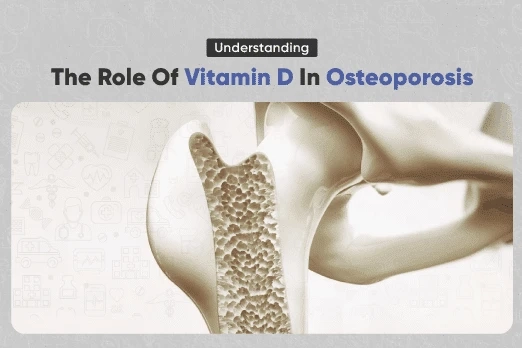If you are among the millions dealing with osteoporosis, you are likely aware of the importance of maintaining strong bones. Recently, researchers have shed light on the pivotal role vitamin D plays in both the development and treatment of osteoporosis. Beyond its known role in calcium absorption and bone health, vitamin D has significant implications for osteoporosis patients.
In this discussion, we\'ll explore how vitamin D impacts overall bone health, muscular strength, and bone density specifically for individuals coping with osteoporosis. We will delve into the best sources and recommended dosages of vitamin D, as well as its potential benefits in preventing and treating osteoporosis.
Understanding Vitamin D\'s Significance
Vitamin D, a fat-soluble vitamin naturally produced in the skin upon sun exposure, is vital for bone health, immune system regulation, and muscular function. It facilitates the absorption of calcium and phosphorus from the intestines, essential for robust bones. Moreover, it influences the control of parathyroid hormone, vital for maintaining blood calcium levels.
The Link Between Vitamin D Deficiency and Osteoporosis
A prevalent concern among osteoporosis patients is vitamin D deficiency, a condition associated with an increased risk of osteoporotic fractures. Inadequate vitamin D leads to poor calcium absorption, weakening bones. Additionally, it contributes to muscular weakness, elevating the risk of falls and fractures in osteoporosis patients.
Vitamin D\'s Impact on Bone Health and Calcium Absorption
Vitamin D plays a crucial role in supporting bone health by aiding calcium absorption in the intestines. It ensures calcium is absorbed efficiently from food and deposited into bones, strengthening them and reducing fracture risk. Without sufficient vitamin D, calcium absorption falters, weakening bones and elevating osteoporosis risk.
Recommended Daily Intake and Sources
For osteoporosis patients, the daily vitamin D dosage varies based on factors like age, gender, and overall health. The National Osteoporosis Foundation recommends 800 to 1000 international units (IU) daily for individuals aged 50 and above. However, those deficient in vitamin D might require higher doses under medical guidance. Customized dosages, coupled with regular vitamin D level monitoring, are imperative.
While sunshine is a natural vitamin D source, certain foods also contain this essential nutrient. Fatty fish like salmon, mackerel, and tuna, along with fortified eggs, mushrooms, and dairy products, contribute to vitamin D intake. Yet, supplementation might be necessary, especially for those with limited sun exposure.
Role of sunlight and Vitamin D Supplements
Sun exposure stimulates vitamin D production in the skin. Brief exposure, a few times weekly, is recommended. However, balancing sun exposure with skin protection against harmful UV radiation is crucial. Supplements, in various forms like pills or liquid drops, might be necessary if dietary sources and sunlight are inadequate. Example, the Uprise D3 60k capsule, ensures optimal vitamin D levels. Consult a healthcare professional for personalized advice.
Importance of Regular Monitoring
Regular vitamin D testing is vital, considering factors like age and overall health affect individual requirements. Blood tests help assess vitamin D levels, enabling healthcare providers to adjust supplementation accurately. Maintaining optimal vitamin D levels is vital for bone health and overall well-being, making regular monitoring essential.
Conclusion: Strengthening Bones through Vitamin D
In summary, vitamin D is pivotal in both the onset and management of osteoporosis. It is indispensable for overall bone health, muscle strength, and bone density. Osteoporosis patients must strive to meet daily vitamin D requirements through a combination of sunlight, dietary sources, and supplements if necessary. Regular monitoring ensures an ideal balance and reduces the risk of fractures. Understanding vitamin D\'s profound impact on osteoporosis empowers individuals to proactively enhance their bone health and overall quality of life. Always consult a healthcare professional before altering your diet or supplement regimen.



